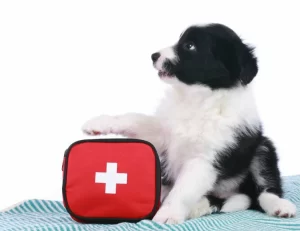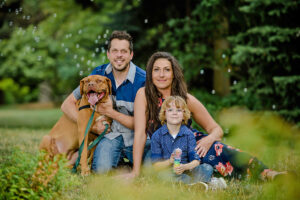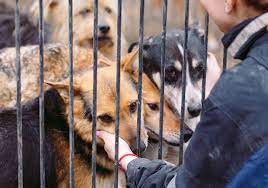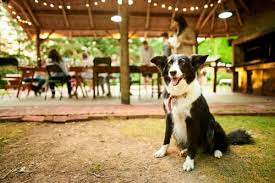As a dog owner, you have the power to maintain your dog’s health through protection against several types of diseases. Vaccination is an important part of your dog’s health routine, and the proper schedule of vaccination helps keep your pet safe and happy. We will deconstruct the vaccination schedule for dogs, explain why vaccinations are so important, and offer management advice.
Table of Contents
ToggleWhy Your Dog Needs Vaccinations
Vaccinations serve a few key purposes:
-
- Prevention of Diseases: Vaccines protect your dog from deadly, life-threatening diseases such as parvovirus, distemper, and rabies.
-
- Herd Immunity: Vaccination doesn’t only protect your dog, but also helps in averting the propagation of disease among the canine population. When the majority of the dogs are vaccinated, that creates herd immunity, thus reducing incidence levels of the disease.
-
- Legally Required: Some vaccinations, for instance, rabies, are legally required in most places. Ensuring that your dog has had his vaccinations takes care of local law compliance.
-
- Travel Requirements: If you are traveling with your dog, most places require proof of vaccinations, especially rabies. Core and Non-Core Vaccines
Before we get into the vaccination schedule, let’s understand what core and non-core vaccines mean: Core Vaccines.
- Travel Requirements: If you are traveling with your dog, most places require proof of vaccinations, especially rabies. Core and Non-Core Vaccines
Core vaccinations are recommended for all dogs regardless of their lifestyle and geographical origin. This is to safeguard them against diseases that are prevalent in the area and are fatal if the dog contracts them. The core vaccines would normally include:
Rabies- it will prevent the rabies virus, which is lethal and can be passed on to humans.
Canine Parvovirus – it prevents parvovirus infection, and severe gastrointestinal illness may arise from it.
-
- Canine Distemper Virus (CDV): Protects against distemper; one of the most contagious diseases of the respiratory, gastrointestinal, and nervous systems.
-
- Canine Adenovirus (CAV-2): Provides immunity against infectious hepatitis and contributes to protection against respiratory disease. Non-Core Vaccines
Non-core vaccines should be given based on a dog’s lifestyle, risk for exposure, and geographic location. This would include:
-
- Bordetella bronchiseptica: These would be given to dogs that are highly exposed to other animals, including those that go to the dog park or the boarding facility.
-
- Lyme Disease: Considered for dogs exposed to areas where Lyme disease is present or when they travel to such areas.
-
- Leptospirosis: Recommended for dogs that are likely to be exposed to possibly contaminated sources of water or environments. Puppy Vaccination Schedule
Pets take some time before building immunity, but this puppy vaccination schedule is vital for saving them from killer diseases. Here is a common puppy vaccination schedule:
6-8 Weeks
-
- DAP or DAPP (Distemper, Parvovirus, Adenovirus)
-
- Bordetella, if necessary 10-12 Weeks
-
- Second DAP (Distemper, Adenovirus, Parvovirus)
-
- First Rabies Vaccination 14-16 Weeks
-
- Third DAP (Distemper, Adenovirus, Parvovirus)
-
- Bordetella (if not given previously)
-
- Second Rabies Vaccination Adult Dog Vaccination Schedule
After your dog reaches adulthood, vaccinations are continued but spread out. Here is the typical adult dog vaccination schedule:
1 Year After Puppy Series
-
- DA2P (Distemper, Adenovirus, Parvovirus)
-
- Rabies (if not given at 14-16 weeks) Every 1-3 Years (Depending on Vaccine Type)
DA2P: Generally boosted every 3 years post the first series.
Rabies: Boosted every 1-3 years. This will vary by local regulations and the vaccine type used.
Bordetella: Annual vaccination is recommended where exposure rates are high or high-potential for dogs.
Lyme and Leptospirosis: Annual may be appropriate depending on local risk factors.
Special Considerations
Health Status
The health of your dog may dictate the course of the vaccination schedule. If your dog happens to have a pre-existing health condition or is immunocompromised, you’ll want to discuss proper vaccination with your veterinarian.
Traveling with Your Dog
When traveling with your dog, know the vaccination requirements for that location. Sometimes, certain vaccinations apply; for instance, Bordetella or rabies. Always check ahead and have those vaccination records available.
First-Time Dog Owners
When you get a dog, you should always request the shelter or rescue for his vaccination history. After getting a dog, schedule a vet visit to assess your dog’s needs and update vaccinations accordingly.
Checking up on Your Dog’s Vaccinations
While keeping vaccination records organized can be helpful with health management and compliance with local laws, here are some general tips on keeping track:
-
- Create a vaccination calendar: jot down dates for all the vaccinations and mark the same on the calendar; create reminders for upcoming vaccinations.
-
- Keep Vaccination Records Handy: store a copy of a dog’s vaccination records in a secure but easily accessible place such as a file or digital document.
-
- Wellness Exams- Regularly: schedule the annual wellness check-up for your dog whereby vaccinations can be reviewed and updated. Common Concerns About Vaccination in Dogs Side Effects
While for the most part, safe, vaccinations can cause a few side effects in your dog, which include:
Swelling at the injection site
Mild fever
Lethargy
Decreased appetite
In rare cases, severe reactions do occur. If you feel your dog is showing any sort of uncommon or alarming symptom, contact your veterinarian immediately.
Vaccine Hesitancy
Many pet owners always appear concerned by one thing about over-vaccination or relationships between vaccines and health issues. It’s very important to engage such concerns with your veterinarian since they will provide you with evidence-based information that may help you in making informed decisions relating to your dog’s health.
Conclusion
Vaccinations form a significant part of your dog’s care program, in the treatment of which protection against numerous infectious diseases ensures a healthy life and even survivorship. Your veterinarian is bound to be delighted to see your dog vaccinated according to the schedule recommended, allowing you to discuss all the details about it.
For more similar info:
https://www.petmd.com › dog › care › dog-vaccinations-f…
































